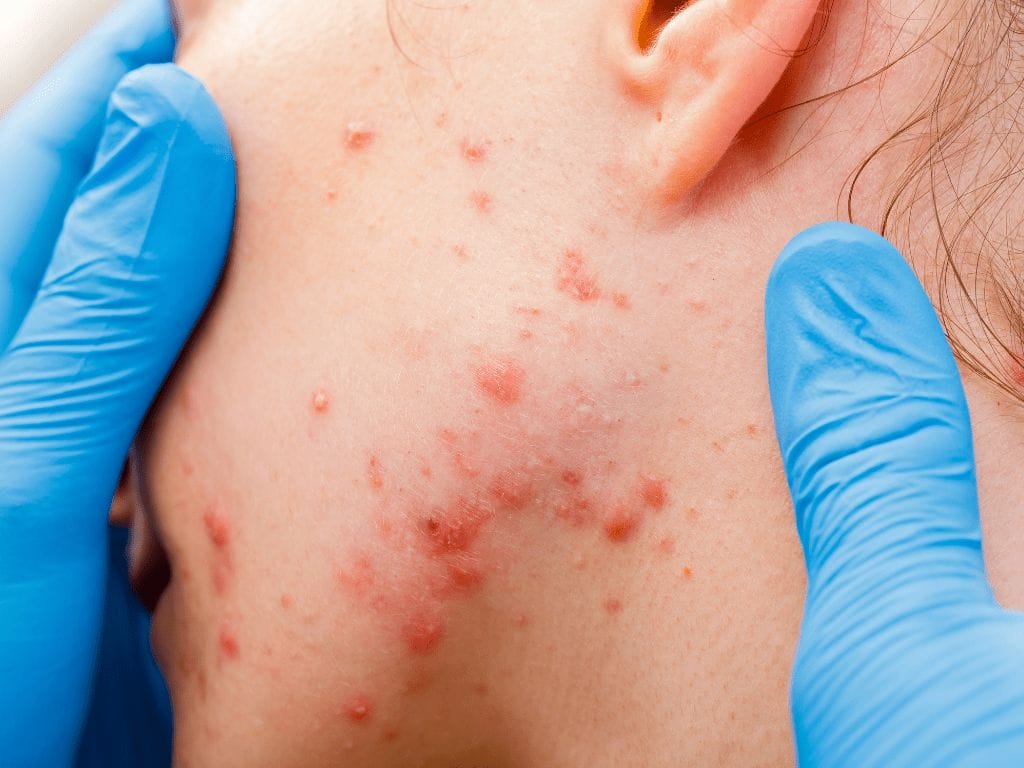4 Signs that you are developing Hormonal Acne
Hormonal acne is a type of acne that is caused by fluctuations in hormone levels. It is most common in teens and young adults, but can occur at any age. There are four main signs that you are developing hormonal acne: increased breakouts, changes in the appearance of your skin, increased oiliness, and inflammation. If you are experiencing any of these signs, it is important to see a dermatologist to get the proper treatment.
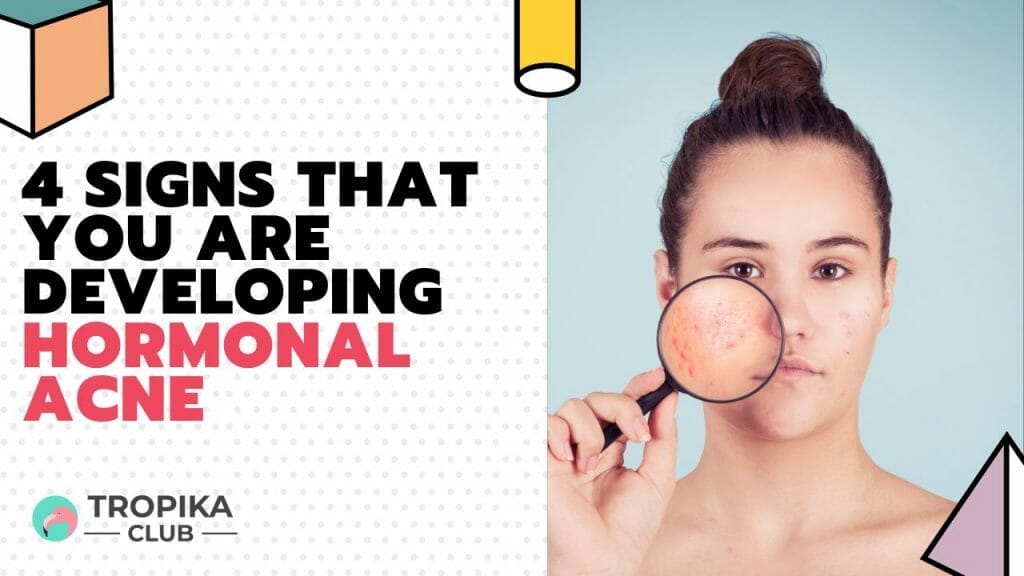
Table of Contents
- Increased oil production and persistent breakouts – One sign of developing hormonal acne is an increase in oil production on your skin, leading to a persistent pattern of breakouts. Hormonal fluctuations can stimulate the sebaceous glands to produce more oil, which can clog pores and lead to the formation of acne.
- Breakouts along the jawline and chin – Hormonal acne often presents itself as breakouts concentrated along the jawline and chin area. These areas are particularly sensitive to hormonal fluctuations, especially during menstrual cycles in women. If you notice a consistent pattern of acne in these regions, it may be an indication of hormonal imbalances.
- Recurring acne during specific times – Another sign of developing hormonal acne is the recurrence of breakouts during specific times, such as before or during your menstrual period. Hormonal fluctuations, such as an increase in androgens (male hormones), can trigger the overproduction of sebum and inflammation, leading to acne flare-ups.
- Deep, cystic acne lesions – Hormonal acne is often characterized by deep, painful, and cystic acne lesions. These types of acne can be difficult to treat and may take longer to heal compared to milder forms of acne. If you notice the presence of large, inflamed, and persistent acne lesions, it could be an indication of hormonal acne development.
Do you wake up looking tired or with dull skin?
You may not look the same when you wake up every morning. On some days, there’s an enviable glow on your face, and you are just okay on other days, you look completely sapped of energy as if you burned midnight oil the previous night.
OH MY GOD !! this is a common reaction to us waking up with breakouts in the morning, and you look at yourself in the mirror, you can’t believe that your face looked so ugly. Acne can be particularly frustrating for adults. One of the bigger lies of teenage-hood is then when you get older; your acne will go away. Instead, you have got different hormones going on in your body which make your skin oily/ This hormone imbalance can cause acne to form. Are you curious how does hormonal acne happen? No worries, the Tropika Team is here today to share with you more details about it.
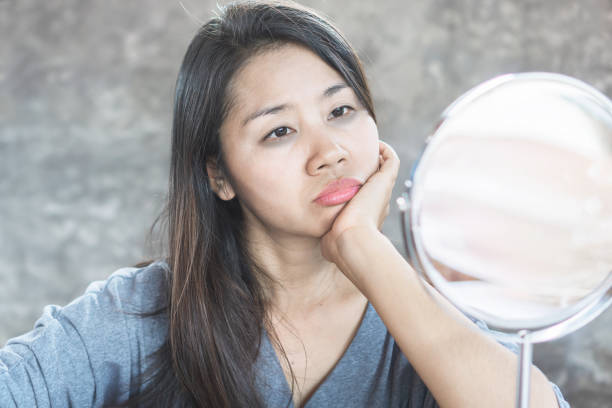
What is Hormonal Acne?
Hormone acne is exactly like acne tied to fluctuations in your hormones system. Hormonal acne can affect adults of any age. It’s estimated that 50 per cent of women age 20 to 29 have acne it and also will affect about 25 per cent of woman age between 40 to 49.
Several factors may contribute to this, which including menstruation and menopause. .Acne occurs when your follicles become plugged with oil and dead skin cells. It usually will cause whiteheads,blackheads or pimples. Women tend to get adult acne more than men do. If you’re getting acne as an adult, it is likely due to one of the following signs.
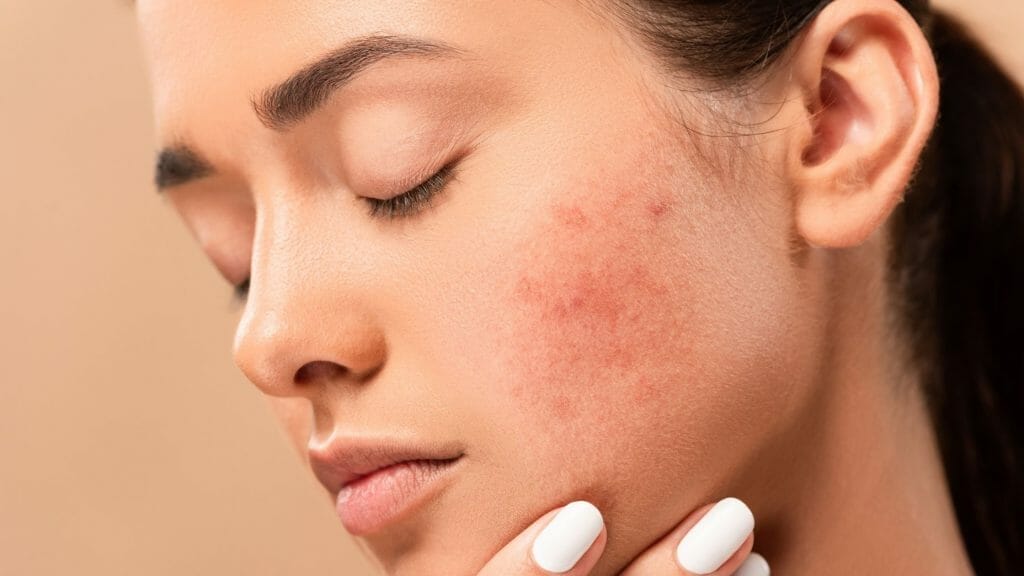
Menstrual cycle
This is the most common period which women experience fluctuations in their estrogen and progesterone. Several hormones within the body control your menstrual cycle, the average cycle lasts about 28 days, and on those days, your hormones level will change. Period acne is different than the typical acne that you may experience on a normal day. These breakouts of pimples usually appear on the lower chin or cheeks. They are typically red, inflamed raised bumps that rarely develop into a white head.
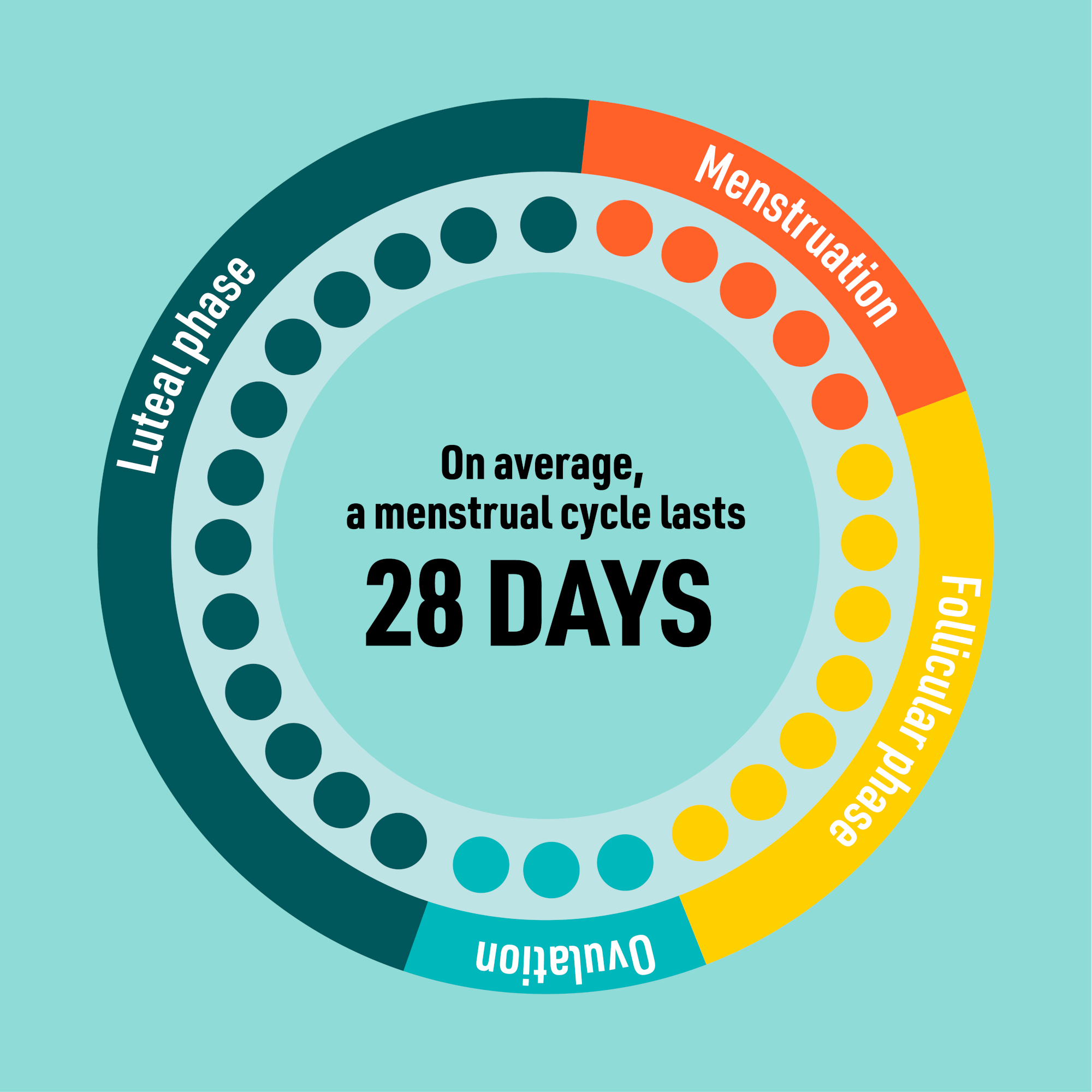
Read:
The Total Skincare Routine Recommended by Dermatologists
Family History
Some close blood relatives, such as your parents, brother or sister, have acne? One of the family members may have a genetic predisposition for acne. People who have this predisposition be more likely to get adult acne, so if self -care remedies don’t clear your acne, you must see primary care doctor.

Stress
Depression and anxiety will cause a lot of side effects. When you are stressed your body will produce more androgens. These hormones stimulate the oil glands and hair follicle in the skin, which can lead to acne. This explains why acne can be an ongoing problem when we found ourselves under constant stress.
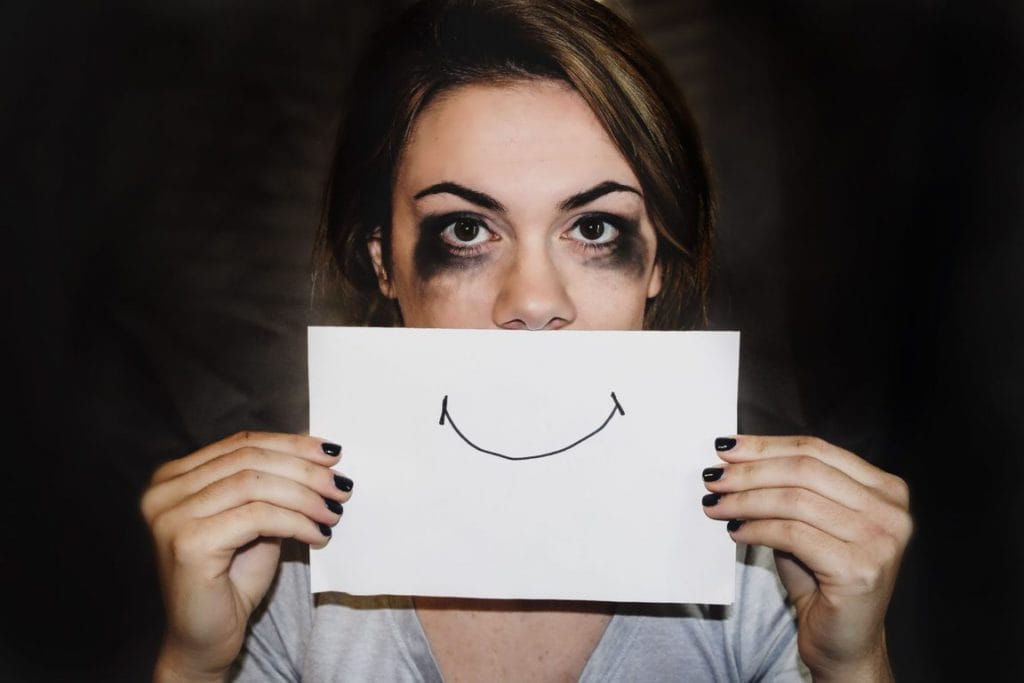
Hair and Skin Care Product
Our daily care products play an essential role in our everyday lives. Sometimes it might cause you to have more skin problems. If you have adult acne, you should choose and read through all the labels on your skincare and hair care products carefully. Do Make sure that your products are non-comedogenic, non-acnegenic, oil-free and won’t clog pores. These products are least likely cause acne.
Next, I will list out some of the common skincare ingredients that are making you break out
- Salicylic acid –should use sparingly, otherwise might be too harsh on acne, can be used in small doses as a spot treatment
- Exfoliating beads – gently sloughing away dead skill cells, harsh exfoliating may actually be what causes acne and irritation. This is because they inflame the skin and make the condition worse and more protracted.
- Fragrance – Do not use scented products on your face, fragrance and perfumes can be found over the counter washes and scrubs toward acne-prone skin.
- Coconut oil – it is occlusive and thick; hence, this kind of oil will clog pores easily.
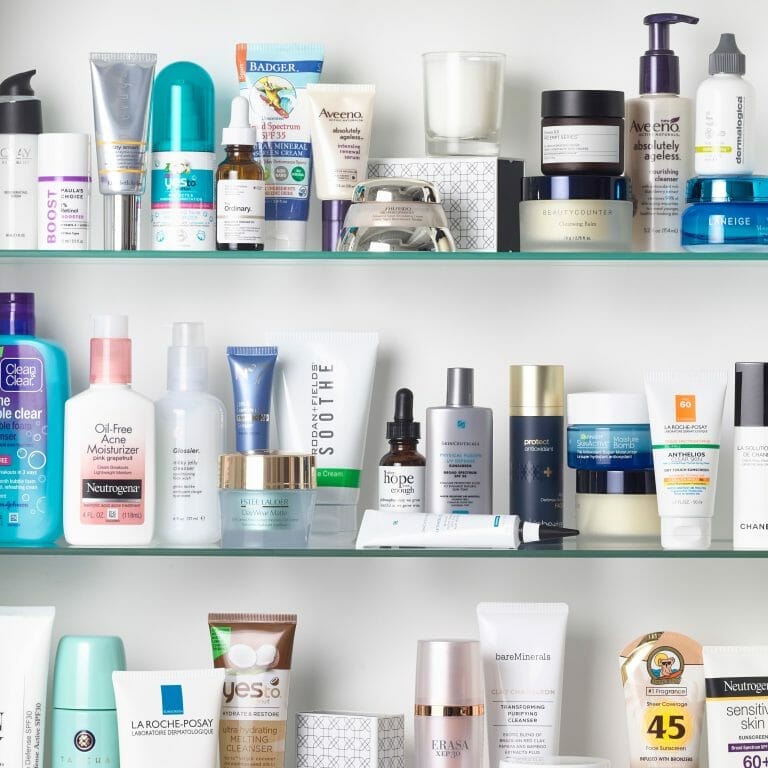
References:
- https://www.mayoclinic.org/diseases-conditions/acne/symptoms-causes/syc-20368047
- https://www.teenvogue.com/story/how-to-treat-a-breakout
- https://en.vogue.me/beauty/how-to-combat-adult-acne/https://www.self.com/story/hormonal-acne
Conclusion
In conclusion, recognizing the signs of developing hormonal acne can help you take proactive steps to manage and treat the condition effectively. The presence of increased oil production and persistent breakouts, particularly along the jawline and chin, are common indicators of hormonal acne. Additionally, experiencing recurring acne during specific times, such as before or during your menstrual period, can also be a sign of hormonal imbalances. Lastly, the presence of deep, cystic acne lesions further suggests the development of hormonal acne. If you notice these signs, it’s important to consult with a dermatologist who can provide an accurate diagnosis and recommend appropriate treatment options tailored to your specific needs. In addition, incorporating skincare products that target acne and regulate sebum production, such as those containing salicylic acid or benzoyl peroxide, can also be beneficial in managing hormonal acne. Taking early action, both through professional guidance and appropriate skincare, can help prevent the worsening of acne and promote clearer, healthier skin.

Frequently Asked Questions (FAQ)
Q: Are breakouts along the jawline and chin always indicative of hormonal acne?
A: Not necessarily. While breakouts in these areas are common signs of hormonal acne, they can also be caused by other factors such as certain skincare products, diet, or environmental factors. It’s important to consider other symptoms and consult with a dermatologist for an accurate diagnosis.
Q: Can hormonal acne occur in both men and women?
A: Yes, hormonal acne can occur in both men and women. While hormonal fluctuations during menstrual cycles make women more prone to hormonal acne, men can also experience hormonal imbalances that contribute to acne development.
Q: Will hormonal acne go away on its own?
A: Hormonal acne can improve and even resolve on its own over time, especially as hormone levels stabilize. However, for some individuals, hormonal acne may persist or worsen if left untreated. Consulting with a dermatologist can help determine the best course of action for managing hormonal acne.
Q: Are there any lifestyle changes that can help manage hormonal acne?
A: Certain lifestyle changes may help manage hormonal acne. These include maintaining a balanced diet, managing stress levels, getting regular exercise, practicing good skincare hygiene, and avoiding harsh or comedogenic skincare products. However, it’s important to note that lifestyle changes alone may not be sufficient for severe cases of hormonal acne and professional treatment may be necessary.
Q: Can birth control pills help with hormonal acne?
A: Birth control pills can be an effective treatment option for hormonal acne in women. They work by regulating hormone levels, specifically reducing the production of androgens that contribute to acne development. It’s important to discuss this option with a healthcare provider to determine if it is appropriate for your specific situation.
Meanwhile, Check Out Tropika Club’s Ecosystem of Websites

Tropika Club Magazine – Tropika Club Magazine is a Singapore-based publication that features articles on a wide range of topics with a focus on local businesses and content for the region. The magazine emphasizes supporting local businesses through its #SupportLocal initiative, which includes coverage of everything from neighborhood hawker stalls to aesthetic clinics in town. In addition to highlighting local businesses, Tropika Club Magazine also covers a variety of local content, including beauty, lifestyle, places, eats, and what’s on in Singapore and the Asia Pacific region.
Tropika Club Deals – Tropika Club Deals is a leading online deals and voucher shopping site in Singapore, offering amazing discounts on beauty, wellness, and fitness products and services. It’s the perfect platform for customers who want to discover the best deals without having to commit to a specific appointment date and time. These deals are available at major beauty stores, facial salons, hair salons, and other brands in Singapore, with no minimum spend required. Choose from guaranteed discounted deals in the categories of hairstyling, hair removal, facial & aesthetics, body slimming, brows & lashes, nails & makeup, massage & spa or fitness & wellness. Tropika Club Deals is also ideal for customers who want to buy vouchers as gifts or to use for the future. So whether you’re looking to save money on your next haircut or want to treat yourself to a relaxing massage, Tropika Club Deals has got you covered with the best voucher and coupon deals in Singapore!



